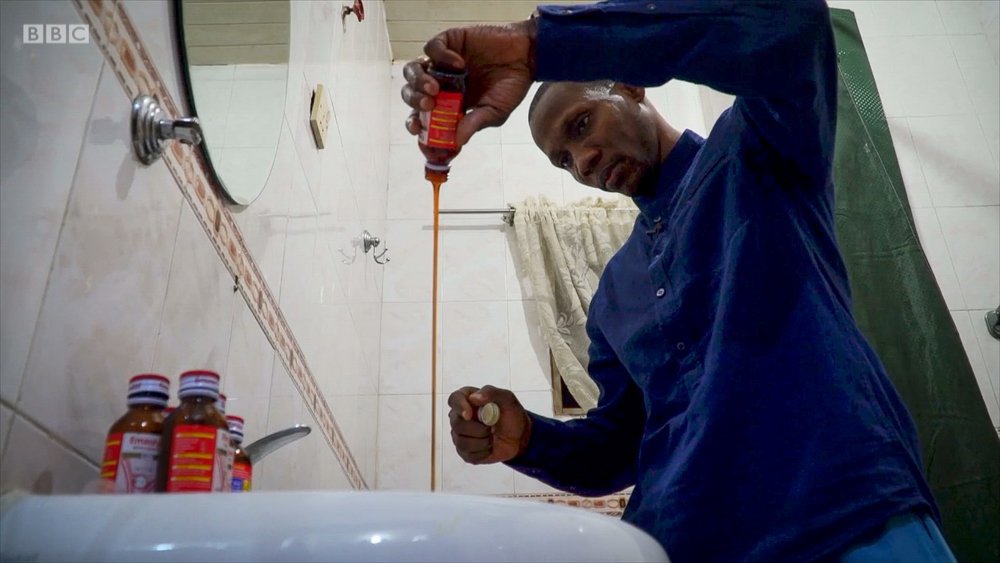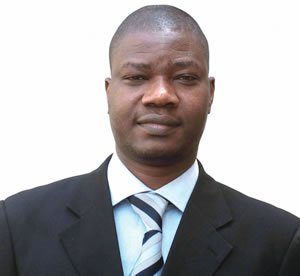They drink it in alleyways and markets, at bars and in private homes. They take it straight or mix it with Coca-Cola, making their purchases underground or in pharmacies, with a prescription or without.
It’s codeine cough syrup, and Nigerian lawmakers estimate that the residents of just two states in the country’s north consume more than 3 million bottles of it each day. “There is no family now that is not affected,” said Oluyemisi Ogun, the medical director at a psychiatric hospital in Lagos, at a symposium in Nigeria last year. “Our children are at risk as much as our husbands, wives and other relatives.”
Now the country’s health ministry has banned the import and production of the painkilling medicine-turned-street-drug. This week’s ban came immediately after the BBC released “Sweet Sweet Codeine,” a documentary that shows pharmaceutical-company staff selling large amounts of cough syrup to undercover BBC reporters. The government claims the ban is the result of an internal investigation and not related to the BBC’s report.
Codeine is an addictive opioid that is often prescribed to treat pain and is mixed in with some cough syrups. Although legal in certain circumstances, consuming large amounts of it can cause psychosis and organ failure. Earlier this year, the U.N. Office on Drugs and Crime warned the Nigerian government that an increasing number of young people were consuming pharmaceutical drugs, codeine among them, on a recreational basis.
But the ban might not do much to end Nigeria’s pharmaceutical-addiction problem. “The cough syrup challenge is just a symptom of a faulty system,” said Adeolu Ogunrombi, a project coordinator at Youth RISE Nigeria, an organization that researches drug-policy reform. “If we are just banning the cough syrup to try to solve the problem, then we are actually missing the point.”
Ogunrombi blames easy access to the medicine on corruption and loopholes in the Nigerian public-health system, including pharmacies that fail to ask for prescriptions. While codeine-based cough syrup was legal in Nigeria, it was supposed to be handed out only to patients with a valid prescription or to those with a pharmaceutical license.
The side effects of codeine are dangerous, but Ogunrombi fears that an outright ban on the syrup will let the government step back from responsibility for widespread addiction and open the door to unregulated and potentially more dangerous replacements.
“A ban has not eliminated the demand for the substance. There is still a huge demand, and a criminal market is going to spring up to meet the needs of the users who are in need of the substances,” he said. “Just like we see a lot of overdose from fentanyl in the U.S., such things will begin to happen here now because a lot of people who have been using codeine syrup will maybe use a deadlier substance and begin to experience overdose.”
On Thursday, the BBC reported that black-market cough syrup prices had already skyrocketed since the implementation of the ban.
Cough-syrup addiction is not just a Nigerian problem. But in a country still struggling to provide basic health care to many of its citizens, treating widespread addiction — regardless of whether the syrup itself is legal anymore — is one of many particular challenges. The government lacks enough social workers to handle other major problems, including the Boko Haram insurgency and a migration crisis.
That has left addicts to be dealt with more as problems than as victims. The BBC documentary published this week shows some cough-syrup addicts chained at centers that are ostensibly helping them recover from their syrup-induced episodes of psychosis.
“Our drug policy is tackling a health problem using a criminal justice approach,” Ogunrombi said. “We don’t even consider that someone who is dependent on drugs is still a human being.”
Source: Washington Post




